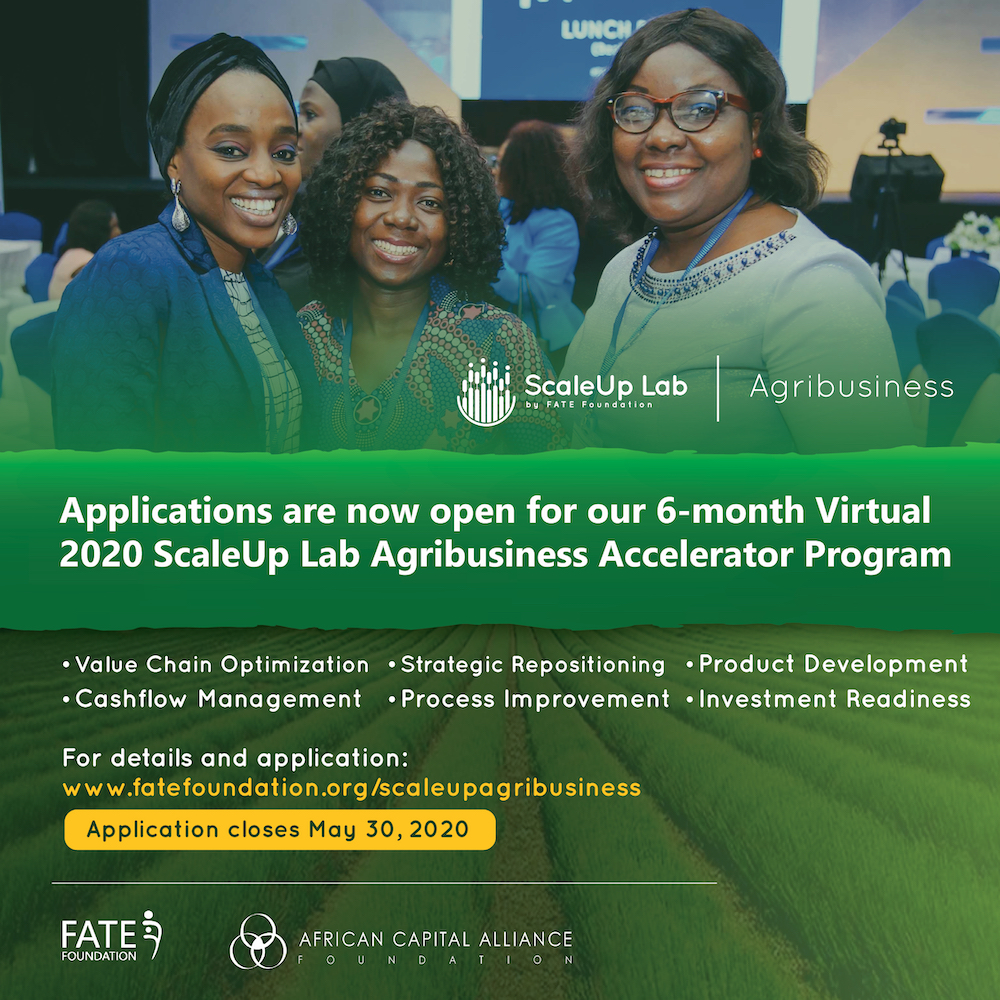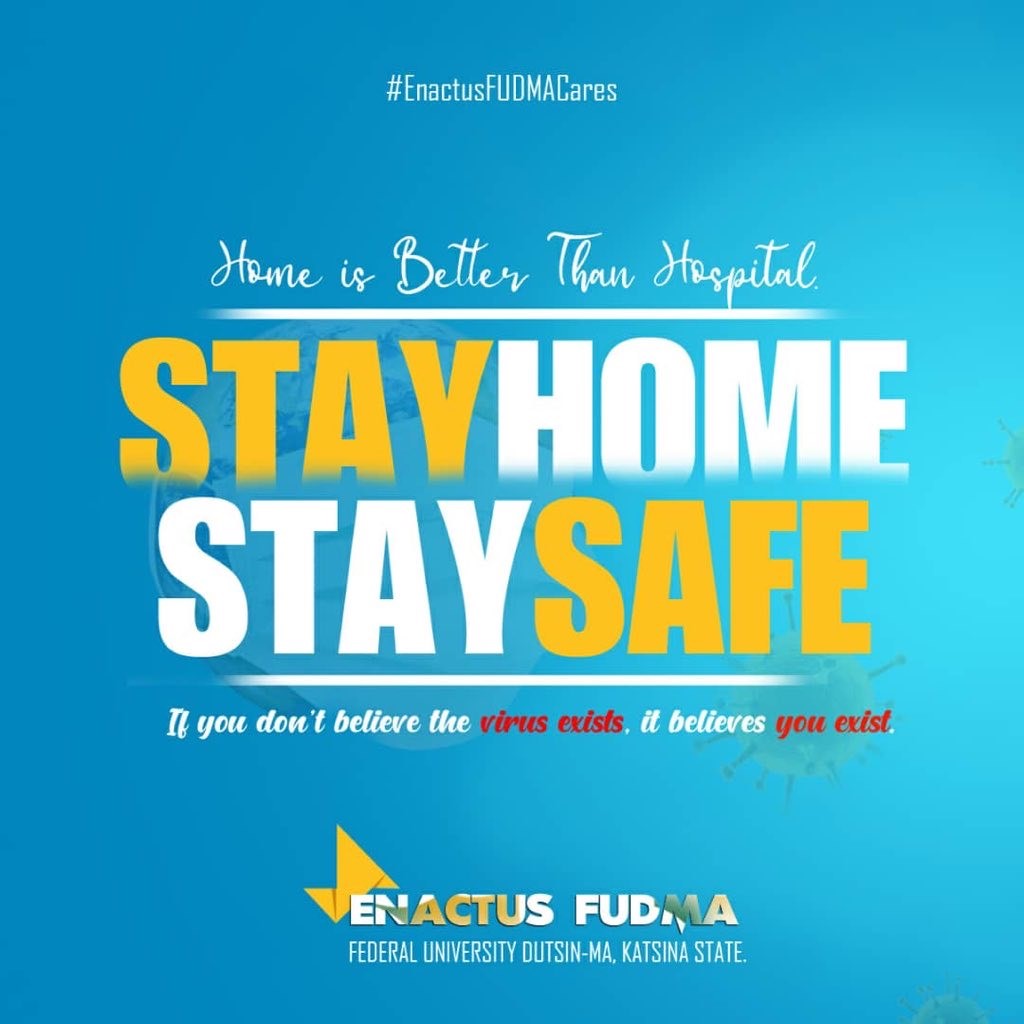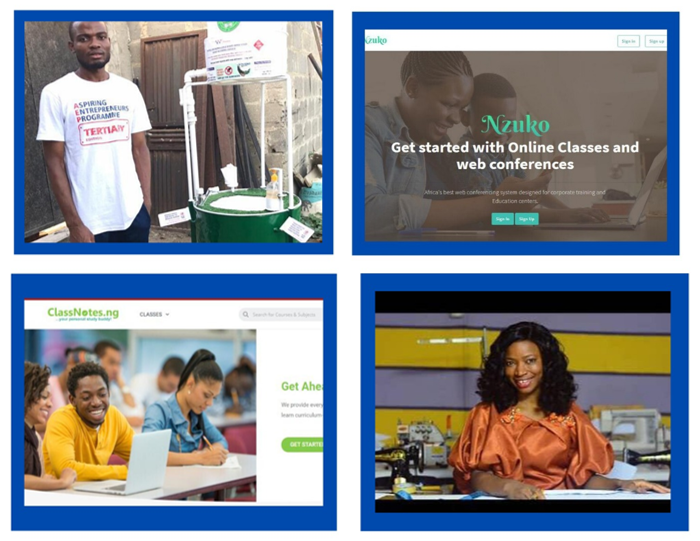Despite the challenges and uncertainties occasioned by the outbreak of the novel COVID-19 pandemic – particularly with the closure of schools and with the social distancing rules – Enactus Nigeria have continued to find ingenious ways of serving communities through the Enactus students teams, demonstrating leadership by strictly adhering to the social distancing rules and implementing programs that help to mitigate the socio-economic impact of the COVID-19 pandemic in communities across the country.
Highlighted below are some of the courageous and inspiring work that Enactus students have embarked on in their communities, in response to the COVID-19 pandemic.
1. The Enactus team from Kaduna Polytechnic is helping its community stay safe and healthy by ensuring people not only have easy access to hand sanitizers and water to wash their hands often, but that they actually imbibe the practice of hand washing and the use of hand sanitizers. The team creatively transformed waste (and other) materials into hand washing basins fully fitted with running water from a tap. The team also produced affordable hand sanitizers which people can easily access and use to protect themselves from the coronavirus. #EnactusCares #SocialDistancing
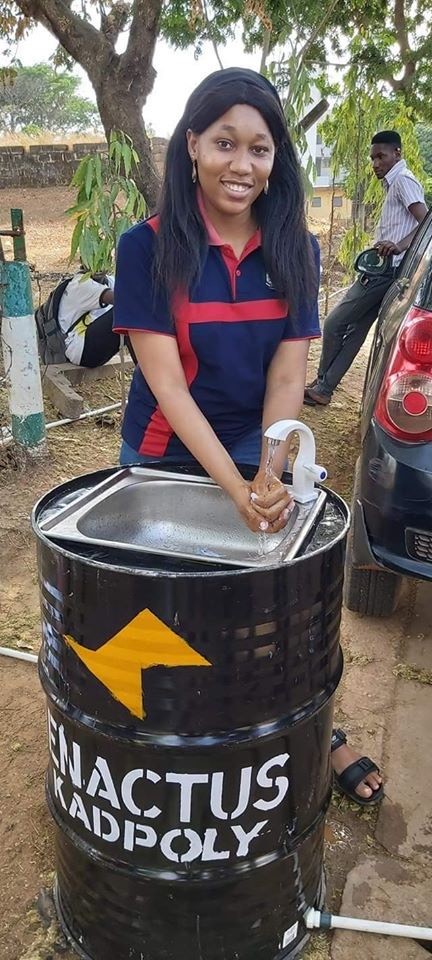
2. Determined to put their community first and protect them from the ridiculously inflated cost of the now scarce hand sanitizers, the Enactus team from Kaduna State University got to work and produced affordable and effective hand sanitizers with an alcohol content of 80% – meeting the WHO standards. In partnership with pharmacies, superstores and hospitals, the team has already produced and sold over 6000 bottles of the hand sanitizers at a rate far cheaper than the going rates. Again, taking entrepreneurial action, the Kaduna Polytechnic Enactus team also produced and distributed safe and recyclable face masks at a rate cheaper than what is available in the market.

3. Committed to ensuring that young people in his community put this lock down and social distancing period to productive use, Oluwatomilola Idris Mustapha, a student member of the Enactus team from Tai Solarin University, created the Leaders Hub – a virtual program that connects, engages and builds the brightest minds through a 30 day Learning Challenge on WhatsApp by 5am-7am . Participants would engage in various activities, such as vision engineering, meditations, affirmation, career talk, and a host of others – creating a culture of excellence among Next generation Leaders. At the end, successful participants will be paired up with Enactus Alumni for a six-month mentorship program.
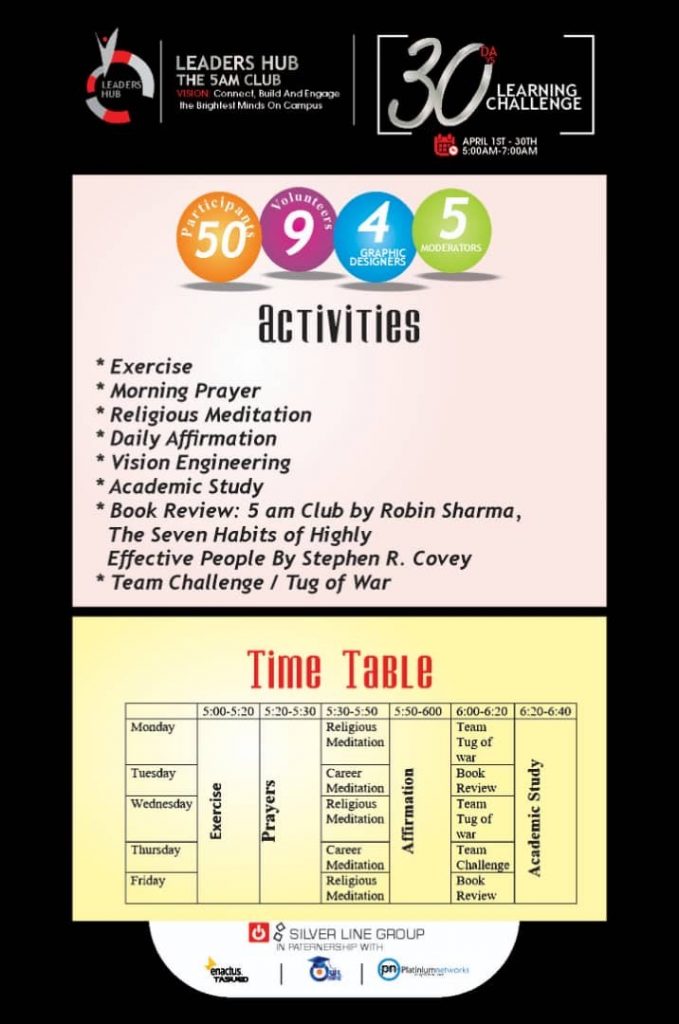
4. In Rivers state, the Enactus students from University of Port-Harcourt have also joined the movement in producing and making affordable hand sanitizers available to the communities around them, at more affordable prices.These students also began a free online skill acquisition classes for students given that schools across the country have shut down all physical operations due to the pandemic.
5. Having previously organized an online sensitization program about the dangers of the ongoing COVID – 19 pandemic and its preventive measures, the Enactus team from the Federal University, Oye-Ekiti, also realized that residents of their host community were oblivious of the reason for the government mandated lockdown and were also not really aware of the deadly nature of pandemic. Therefore, the team repurposed the laudable online program to a communal engagement program which allowed them to visit a rural community in Ekiti state to enlighten the people about the dangers of the virus and the necessary preventive measures they must imbibe. During this engagement, the team also distributed relief materials to the residents of the community.
6. In Ota, Ogun state, the Enactus team from Covenant University reached out to one of the exposed and vulnerable group – Police Officers – on patrol duty to enforce the lock down directive by the government. The Enactus team from Covenant University provided the police station in their immediate community with face masks to protect them from getting infected during their daily operations.
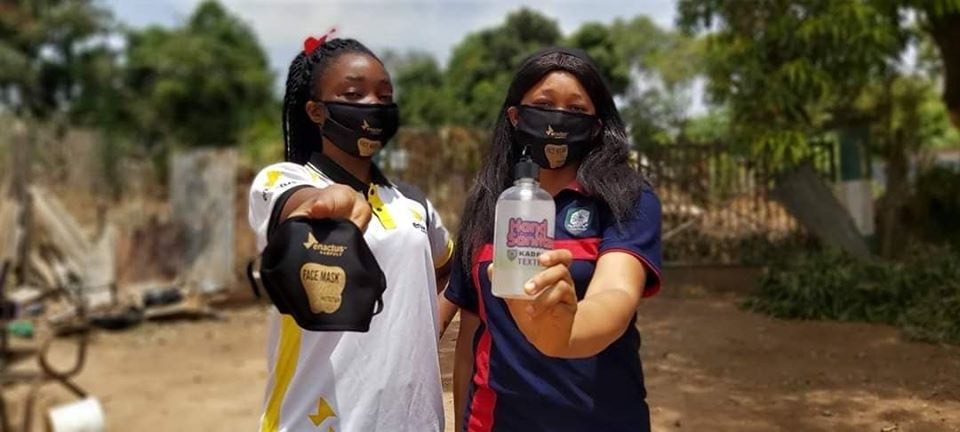
7. The Enactus team from the Federal Polytechnic, Idah provided their support in bridging the gap between buyers and sellers of food items, due to the social distancing directives. To this end, the Enactus team has developed an e-commerce platform linking food sellers (who cannot take their goods to the market because they are closed) to buyers (who are in need of these goods, but they have to stay safe at home). Once the connection is made, and the orders placed, the Enactus team ensures that the orders are delivered to the buyers in record time.
8. The Federal University of Agriculture Makurdi in Benue state houses a great team of students who also saw opportunity in the problems caused by the Covid pandemic, and joined the movement in encouraging people to maintain proper hygiene and protect themselves against the virus, through the production and commercialization of alcohol-based hand sanitizers.

9. Committed to ensure that vital information about the deadly corona virus gets to the people most vulnerable in rural communities, and in languages they can understand, the Enactus team from Bayero University, Kano, using materials from credible sources, created an engaging and very informative video explaining the safety precautions to take against the virus in Hausa language and disseminated same in different communities. This way, they can be sure that the uneducated and non-English speaking members of their communities get the right information about how to protect themselves from the deadly virus.
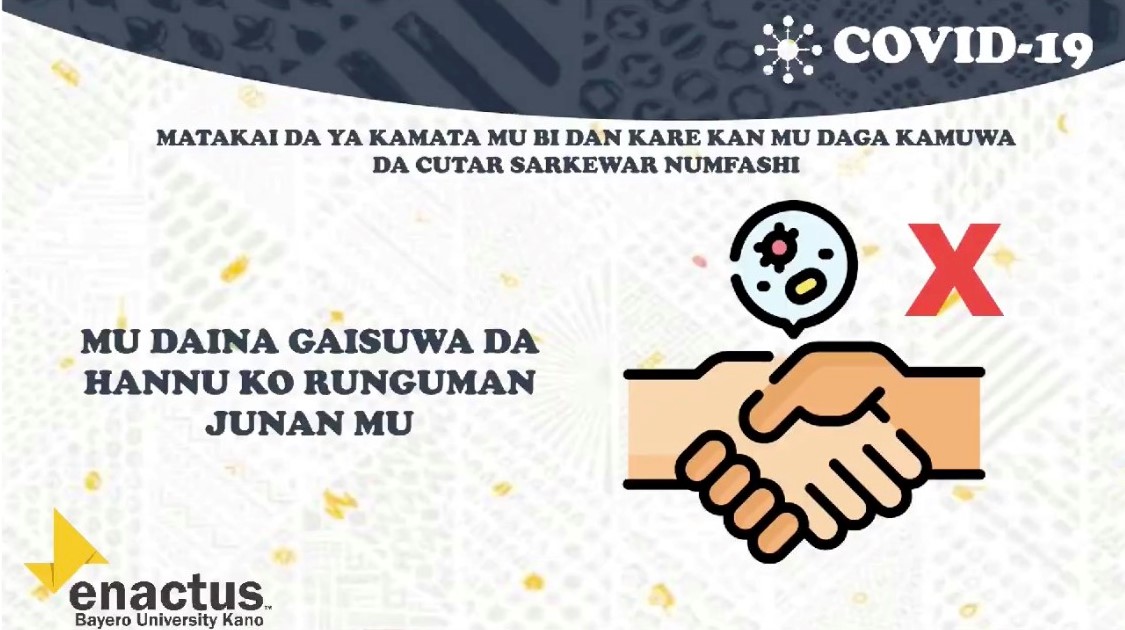
10. The Enactus team at Ahmadu Bello University, Zaria, has successfully organized and hosted a social media campaign on twitter. This allowed the team share educative content and host live panel discussions to keep their audience engaged and informed about the corona virus.
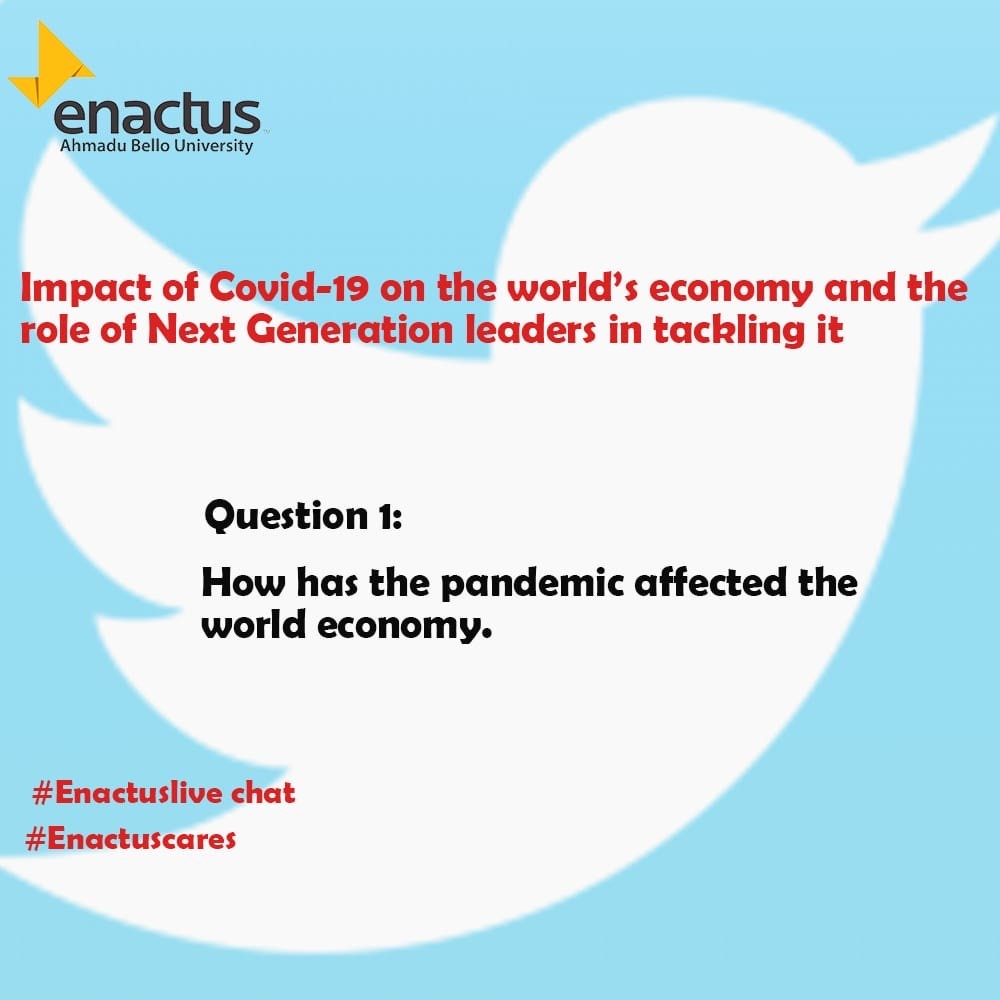
In addition, the Ahmadu Bello University Enactus team will be providing relief materials to the poor and vulnerable families in the Zaria community through its new initiative – The Enactus ABU Food Support Program. The goal of the program is to provide relief materials including food and other essential products to 150 families in 6 different communities and help cushion the effect of the lock down on the families. The program will be implemented in 3 phases, with the first phase (outreach) scheduled for May 28, 2020. In this phase, the goal is to provide relief materials for 50 predetermined vulnerable families in the Bomo and Samaru communities of Zaria.
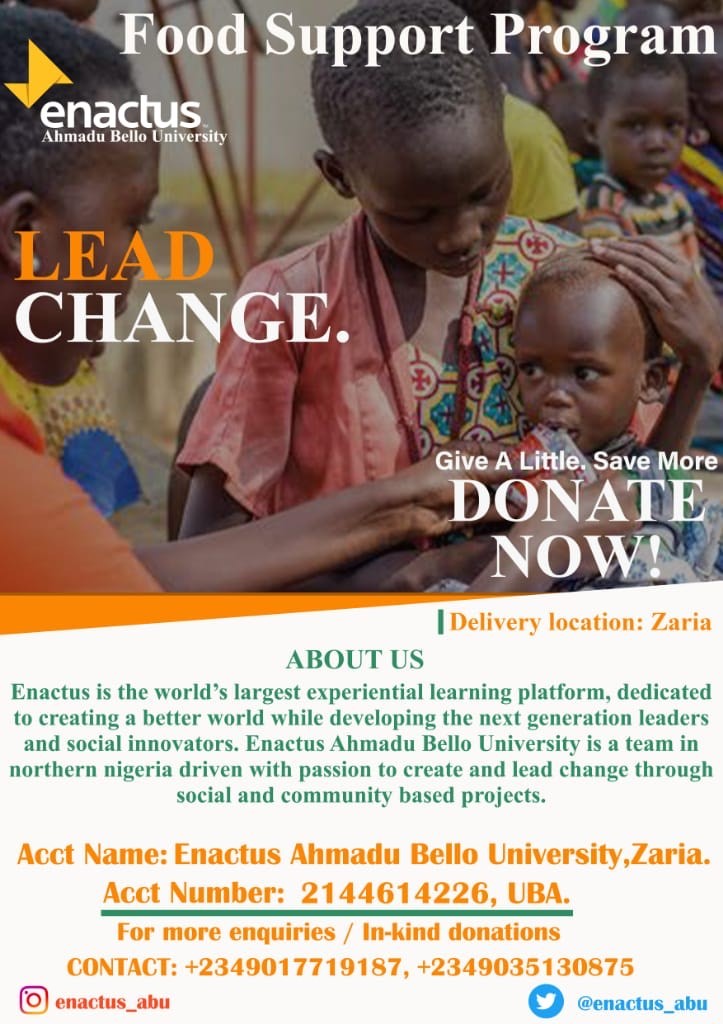
For Enactus Nigeria, the belief has always been that, with the right motivation, mentorship and support, the Nigerian youth can leverage their youthfulness, energy and innovative genius to make meaningful contributions to national development and cohesion.

